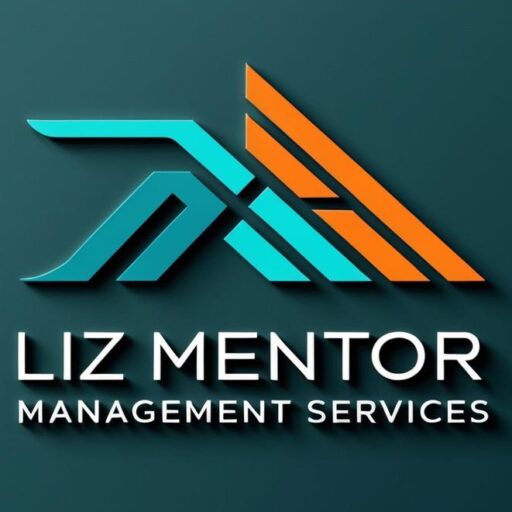Phone Etiquette – Elevating Your Call Center Communication
When it comes to call center success, your phone skills are more than just a functional necessity—they are a powerful tool that can shape customer experiences, drive sales, and even influence overall employee satisfaction. Module 4 of our Call Center Training course, Phone Etiquette, dives into how preparation, rapport-building, speaking clearly, and effective listening can transform the way you communicate with clients and colleagues.
In today’s competitive business landscape, customers often form their first impression of a company entirely over the phone. This makes phone etiquette a cornerstone of professional communication. It’s not just about what you say, but how you say it, how you listen, and how you ensure the conversation leaves a lasting positive impression.
Preparation: Setting the Stage for Success
Effective phone communication begins long before the first “hello.” Preparation is your silent ally. This isn’t about memorizing scripts word for word but rather about understanding your purpose, knowing your customer, and anticipating the flow of the conversation.
Preparation includes gathering relevant information about the client, reviewing past interactions, and identifying key points you want to cover. By walking into every call with clarity, you can navigate unexpected questions or objections more confidently. Think of it as mental warm-up: athletes don’t run a marathon without stretching first, and similarly, call center agents should prime themselves to ensure their communication is precise and professional.
A well-prepared call can also reduce stress. Knowing what you need to convey and how to do it ensures you stay composed, even if the client is difficult or the conversation takes an unexpected turn.
Building Rapport: The Art of Connection
Rapport is more than friendliness; it’s the ability to create trust and connection within the span of a single call. Establishing rapport sets the tone for a productive conversation and can significantly improve outcomes, whether that means solving customer issues or securing a sale.
Simple techniques such as using the client’s name, matching their energy, and demonstrating genuine interest in their concerns can make a world of difference. These small, intentional actions signal respect and attentiveness, which in turn encourages engagement and cooperation. In a call center, where interactions are often brief, building rapport quickly can transform a routine transaction into a memorable customer experience.
It’s also important to recognize that rapport isn’t just about being liked—it’s about being effective. By establishing a positive connection, you make clients more receptive to your solutions and guidance. When a client feels heard and understood, they’re more likely to respond positively to your recommendations.
Speaking Clearly: Tone, Pace, and Precision
Clear communication is at the heart of phone etiquette. How you speak—the tone, pace, and clarity of your words—can influence how your message is received. Even if the content of your message is excellent, poor delivery can leave the listener confused or frustrated.
Tone is your invisible handshake over the phone. A warm, confident, and professional tone builds trust and conveys competence. Avoid monotone speech, as it can make you sound disinterested or robotic. Instead, vary your intonation to convey enthusiasm and engagement.
Pace also matters. Speaking too quickly may leave clients struggling to keep up, while speaking too slowly can frustrate those who expect efficient communication. The key is to find a rhythm that allows the listener to absorb information comfortably while keeping the conversation dynamic.
Pronunciation and word choice are equally critical. Avoid jargon unless you are certain the client understands it, and articulate words clearly to prevent miscommunication. Remember, clarity is kindness; it reduces the chances of repeated explanations and misunderstandings.
Effective Listening: Beyond Hearing Words
Listening is often underestimated in phone communication, yet it is perhaps the most crucial skill of all. Effective listening involves more than just hearing the client—it requires interpreting their needs, emotions, and underlying concerns.
Active listening techniques can transform your calls. This includes verbal cues like summarizing what the client said (“So, if I understand correctly, you’re looking for…”), asking clarifying questions, and acknowledging their concerns. These actions signal attentiveness and empathy, making clients feel valued.
It’s also vital to avoid interrupting, even when you think you know the solution. Clients appreciate being heard fully before a response is provided. This patience often leads to better insights into the client’s needs and more tailored solutions, enhancing both satisfaction and efficiency.
Handling Difficult Calls with Grace
No call center interaction is always smooth, and difficult calls are inevitable. However, mastering phone etiquette equips you to handle these situations gracefully. Maintaining a calm tone, demonstrating empathy, and actively listening to the client’s frustrations can de-escalate tense conversations.
Preparation plays a role here as well. Anticipating common challenges and preparing responses allows you to address issues without becoming defensive. Remember, the way you react to a difficult situation often leaves a more lasting impression than the issue itself. A client who experiences professional, empathetic service—even in conflict—may become a loyal advocate rather than a detractor.
Beyond the Call: The Ripple Effect of Phone Etiquette
Good phone etiquette doesn’t just benefit individual interactions—it influences your workplace culture and organizational success. Employees who communicate effectively over the phone are more confident, which can increase job satisfaction and reduce turnover. Happy, competent employees often create happier customers, which in turn drives sales, referrals, and loyalty.
Moreover, developing strong phone etiquette encourages continuous learning and professional growth. Agents who focus on preparation, rapport-building, clarity, and active listening cultivate transferable skills applicable across a variety of professional contexts, from meetings to presentations and negotiations.
Conclusion: Mastering the Call
Phone etiquette may seem like a small component of professional communication, but its impact is substantial. Module 4 of Call Center Training underscores the importance of preparation, building rapport, speaking clearly, and effective listening. By mastering these skills, call center agents can elevate customer interactions, foster trust, and drive tangible business outcomes.
Investing time and energy into refining phone etiquette is more than an operational necessity—it’s an investment in your professional brand, your career growth, and the overall success of your organization. Every call is an opportunity to leave a positive impression, solve a problem, or create a lasting connection. By embracing the principles outlined in this module, participants will gain the confidence, clarity, and competence to turn every phone conversation into a strategic advantage.



